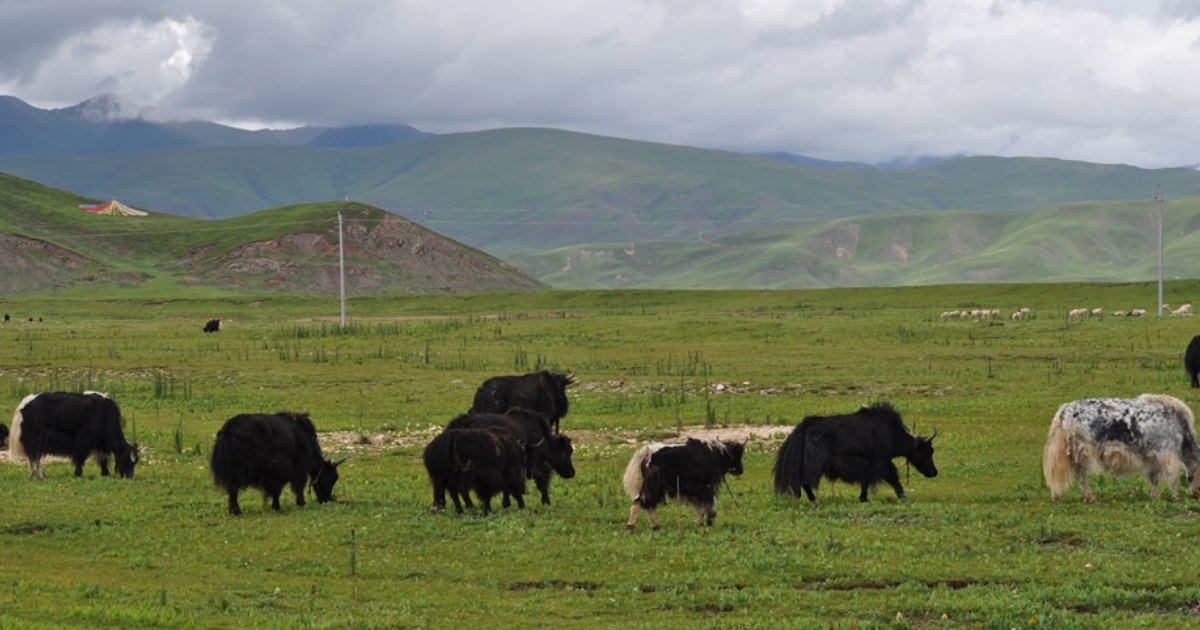Ecology and Restoration of Grassland—2nd Edition
A special issue of Diversity (ISSN 1424-2818). This special issue belongs to the section "Plant Diversity".
Deadline for manuscript submissions: 30 June 2026 | Viewed by 2201

Special Issue Editor
Interests: grassland degradation; hydrologic process; water cycle; water conservation function
Special Issues, Collections and Topics in MDPI journals
Special Issue Information
Dear Colleagues,
Grasslands are a vital component of terrestrial ecosystems, covering approximately 40% of the global vegetated area. They play an irreplaceable role in critical ecological processes such as biodiversity conservation, water and soil resource regulation, sustainable livestock production, and global carbon and nitrogen cycles. However, overgrazing, climate change, and intensified anthropogenic disturbances are accelerating grassland degradation worldwide, triggering cascading ecological effects, including retrogressive vegetation succession, the deterioration of soil physicochemical properties, and a decline in hydrological regulation functions. Current research on degraded grassland restoration predominantly focuses on aboveground vegetation reconstruction techniques, with insufficient attention paid to key scientific issues such as belowground soil–microbial interaction mechanisms and root–soil–water coupling processes. Moreover, there is a lack of a systematic theoretical framework integrating multi-trophic interactions and ecosystem multifunctionality.
This Special Issue aims to establish an interdisciplinary research platform, with a focus on soliciting cutting-edge contributions in the following areas:
(1) Cascading response mechanisms of vegetation–soil–water systems during grassland degradation;
(2) Adaptive restoration techniques for degraded grasslands across different climate zones;
(3) Aboveground–belowground synergistic recovery mechanisms driven by microbiomes;
(4) Restoration effectiveness evaluation based on ecosystem multifunctionality enhancement;
(5) Innovative applications of artificial intelligence and remote sensing in degradation monitoring.
We particularly encourage research on fundamental theories such as ecohydrological processes in arid and semi-arid regions, soil carbon pool stability maintenance, and plant–microbial interaction networks, as well as systemic solutions that integrate ecological restoration practices with sustainable development goals. By synthesizing multidimensional research findings, we hope to provide new theoretical foundations and technical paradigms for the ecological restoration of degraded grasslands worldwide.
Dr. Xiaowei Guo
Guest Editor
Manuscript Submission Information
Manuscripts should be submitted online at www.mdpi.com by registering and logging in to this website. Once you are registered, click here to go to the submission form. Manuscripts can be submitted until the deadline. All submissions that pass pre-check are peer-reviewed. Accepted papers will be published continuously in the journal (as soon as accepted) and will be listed together on the special issue website. Research articles, review articles as well as short communications are invited. For planned papers, a title and short abstract (about 250 words) can be sent to the Editorial Office for assessment.
Submitted manuscripts should not have been published previously, nor be under consideration for publication elsewhere (except conference proceedings papers). All manuscripts are thoroughly refereed through a single-blind peer-review process. A guide for authors and other relevant information for submission of manuscripts is available on the Instructions for Authors page. Diversity is an international peer-reviewed open access monthly journal published by MDPI.
Please visit the Instructions for Authors page before submitting a manuscript. The Article Processing Charge (APC) for publication in this open access journal is 2100 CHF (Swiss Francs). Submitted papers should be well formatted and use good English. Authors may use MDPI's English editing service prior to publication or during author revisions.
Keywords
- grasslands
- ecosystem degradation
- biodiversity conservation
- soil–microbial interactions
- restoration techniques
- ecosystem multifunctionality
- climate change
- ecohydrological processes
- remote sensing monitoring
Benefits of Publishing in a Special Issue
- Ease of navigation: Grouping papers by topic helps scholars navigate broad scope journals more efficiently.
- Greater discoverability: Special Issues support the reach and impact of scientific research. Articles in Special Issues are more discoverable and cited more frequently.
- Expansion of research network: Special Issues facilitate connections among authors, fostering scientific collaborations.
- External promotion: Articles in Special Issues are often promoted through the journal's social media, increasing their visibility.
- Reprint: MDPI Books provides the opportunity to republish successful Special Issues in book format, both online and in print.
Further information on MDPI's Special Issue policies can be found here.





